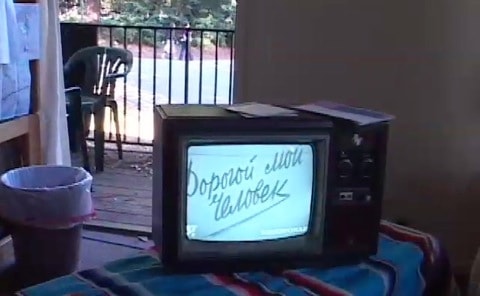
Soviet Bloc television is often seen as political propaganda in its purest form, but this is misleading for many reasons. Communist governments didn’t always know how to use television for their purposes, censorship was not always and not everywhere ultra-tight, Western formats like game shows and commercials became quite popular, consumer demands were advanced by the access to West-European television signals in some regions, and humor and irony gradually subverted much of the political messaging.
In this week’s Cold War Spaces interview with Aniko Imre, Professor of Cinematic Art at USC, we will speak about Cold War-era TV in the communist countries, but we will also discuss the new role of television after the end of state socialism und under authoritarian rule such as in Poland and Hungary. We will touch upon the completely polarized media landscape in present-day America as well. Imre published widely on media globalization, transnational television, and studies of (post)socialism, gender, race and sexuality. Among her publications are Identity Games: Globalization and the Transformation of Post-Communist Media Cultures (2009) and TV Socialism (2016).
Wednesday, August 5, 12 p.m. Pacific Time. RSVP link:
https://us02web.zoom.us/webinar/register/8515958636862/WN_nO9EnxvPQ5W2YXAtdwzqfQ
To view earlier recorded episodes:
https://vimeo.com/showcase/7073507


Be the first to comment